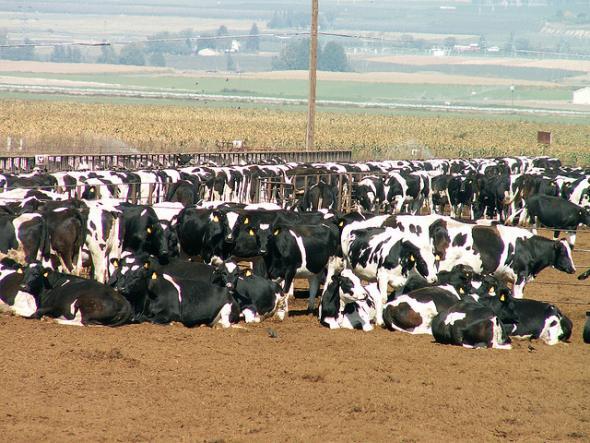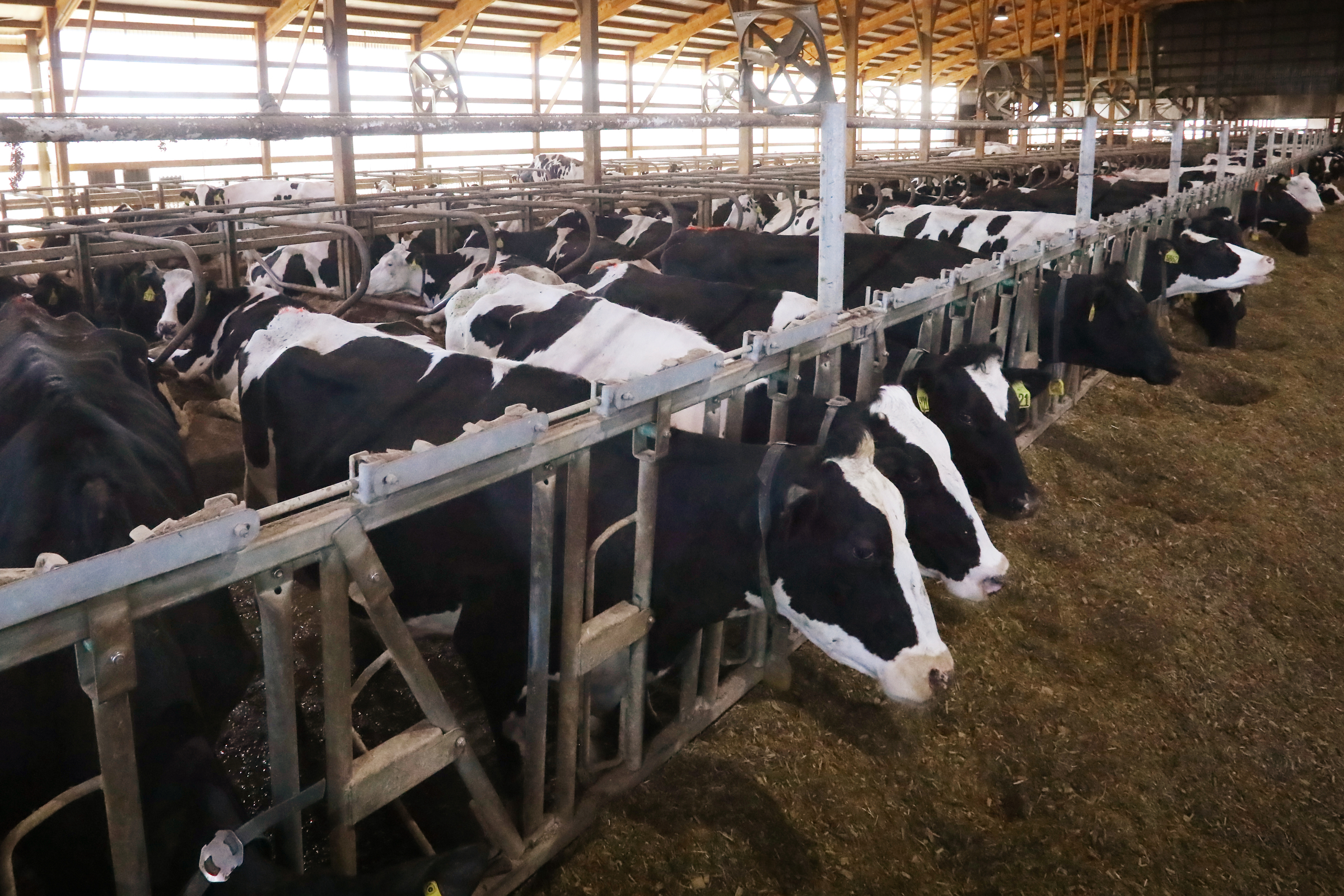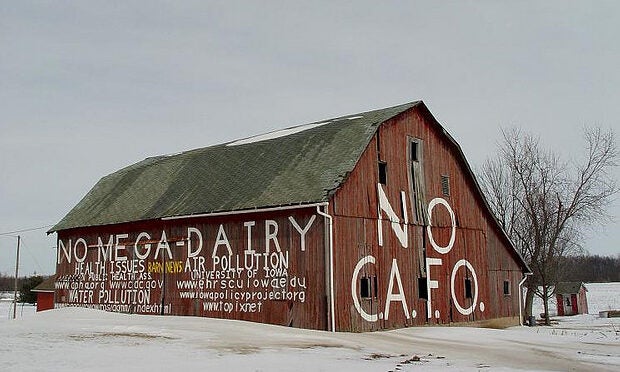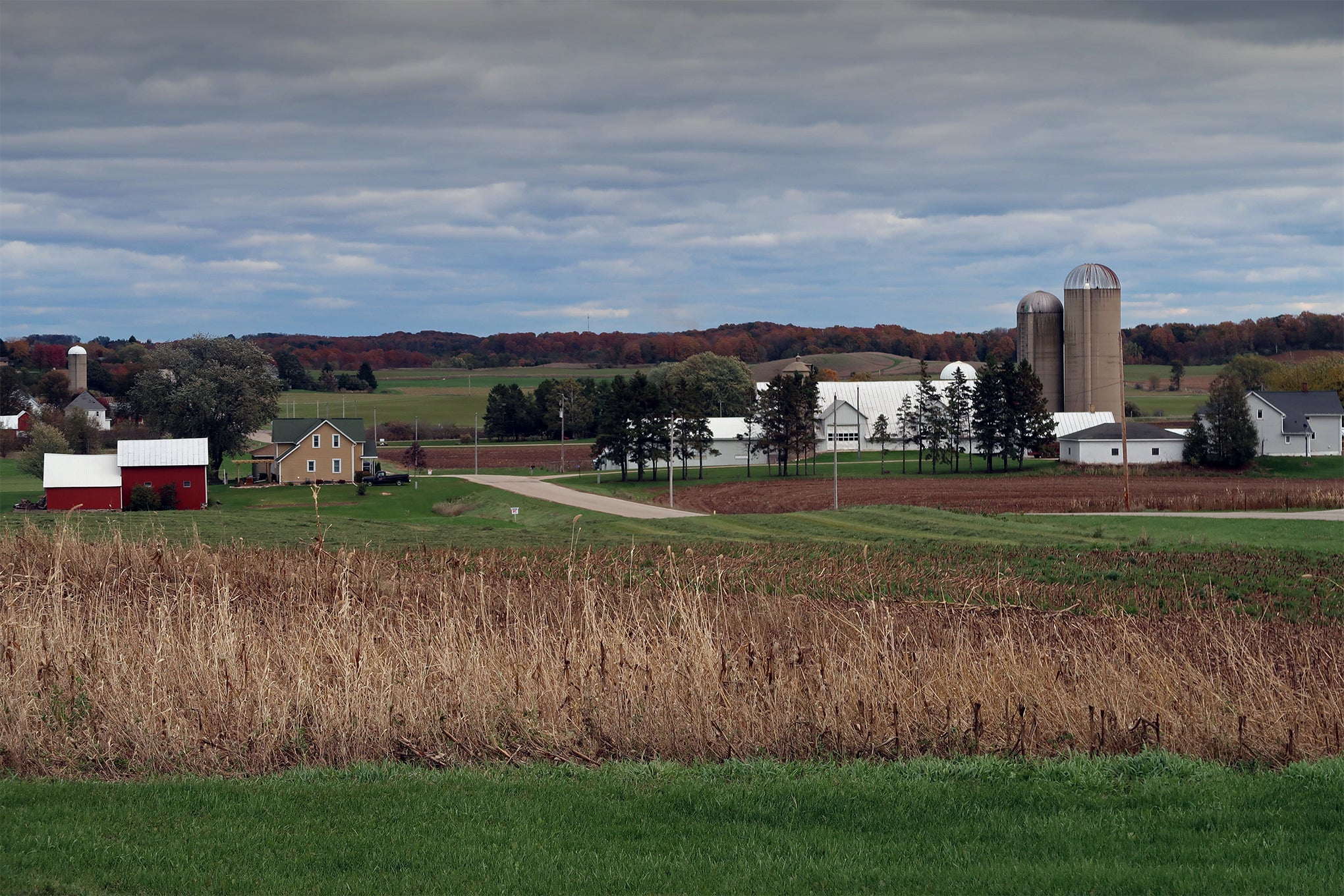A Calumet County judge has ruled in favor of the Wisconsin Department of Natural Resources in a lawsuit that would have limited oversight of manure pollution in state waters.
Last May, the WMC Litigation Center sued the Wisconsin DNR in Calumet County Circuit Court on behalf of the Wisconsin Dairy Alliance and Venture Dairy Cooperative.
In Wisconsin, large farms known as concentrated animal feeding operations, or CAFOs, are required to apply for wastewater pollutant discharge elimination system, or WPDES, permits. Those operations include 335 farms with 1,000 animal units or more, which is equal to 700 milking cows. The wastewater discharge permits require CAFOs to take certain steps to prevent manure from polluting water.
Scott Rosenow, an attorney for farm groups, argued that DNR rules on CAFO permitting requirements and agricultural stormwater runoff aren’t consistent with state and federal law. The farm groups asked the court to find the regulations went beyond the agency’s authority and couldn’t be legally enforced.
Calumet County Circuit Court Judge Carey Reed denied the groups’ motions. Reed found the DNR has broad authority that doesn’t conflict with state and federal law.
“Therefore, the department’s promulgation of these permitting requirements does not exceed their authority, as I indicated, and they are enforceable,” Reed said.

Following the decision, a DNR spokesperson said the agency is unable to comment on pending litigation. Rosenow also declined to comment on the ruling or whether groups may appeal.
Stay informed on the latest news
Sign up for WPR’s email newsletter.
Environmental groups Clean Wisconsin and Midwest Environmental Advocates intervened in the case.
Attorney Adam Voskuil with Midwest Environmental Advocates represented the Wisconsin Farmers Union. In a statement, he said the group is pleased the court upheld clean water protections.
“This decision prevented a pretty severe rollback of environmental authority and regulation in the state,” Voskuil told WPR. “Now, we get to maintain what was pretty clear all along: the authority for the Department of Natural Resources to protect the waters of the state, the groundwater and the surface water.”
Voskuil noted manure runoff can lead to contamination from nitrates and other pathogens. Around 90 percent of nitrate pollution in groundwater can be traced back to agriculture, according to the Wisconsin Groundwater Coordinating Council.
Attorney Evan Feinauer with Clean Wisconsin said in a statement that CAFOs are capable of producing as much waste as a small city.
“[T]he state must be able to monitor and control how, where, and in what quantities manure is stored and spread on the landscape,” Feinauer said. “That’s why for nearly 40 years, the DNR has required large CAFOs to have permits to limit this dangerous pollution. Allowing large dairies to sidestep oversight would have been catastrophic for water protection in our state.”
The WMC Litigation Center and farm groups had argued federal appeals court rulings in 2005 and 2011 found the Clean Water Act doesn’t allow the Environmental Protection Agency to require CAFOs to get wastewater discharge permits until they actually release waste into waterways. Midwest Environmental Advocates said that’s meant a lack of federal permits to oversee large livestock operations in states like Indiana, Iowa, and Ohio.
Venture Dairy Cooperative and the Wisconsin Dairy Alliance have previously said they want to change the presumption that CAFOs are polluters. They have said large livestock operations would still need to comply with state regulations that oversee manure runoff, restrict spreading in some areas and require nutrient management plans. The two groups have argued it’s costly and burdensome for farms to obtain CAFO permits.
The lawsuit is not the first to challenge DNR’s authority to require permits for CAFOs. In 2017, the Dairy Business Association sued the agency in part over its permit requirements, dropping that claim as part of a settlement with the DNR. Large farms have also challenged the agency’s authority to impose permit conditions on their operations. In 2021, the Wisconsin Supreme Court ruled the DNR had authority to impose permit requirements on large farms to protect water quality.
Wisconsin Public Radio, © Copyright 2025, Board of Regents of the University of Wisconsin System and Wisconsin Educational Communications Board.




